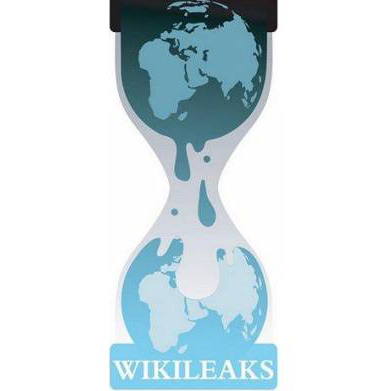Hundreds of thousands of classified Iraq war papers provided to WikiLeaks contain information telling of prisoner abuse and acts committed by Iraqi security forces that included murder, torture and rape, in the largest ever leak of classified US military documents, dpa reported.
The London-based Guardian newspaper and other outlets obtained the documents from WikiLeaks in advance of the self-described whistleblower website's plan to publish them. The papers comprise more than 390,000 classified US military documents and their publication has infuriated the Pentagon.
The Guardian says the documents show US authorities failed to investigate allegations of crimes committed by Iraqi police and soldiers. US authorities said any known crimes were reported to the appropriate Iraqi officials responsible for governing the country and carrying out investigations.
According to The New York Times, Iraqi authorities did little to follow up on crimes reported by the Americans. One of the documents said an Iraqi police chief refused to file charges as long as the abuse produced no marks." Another police chief told military inspectors that his officers engaged in abuse and supported it as a method of conducting investigations."
WikiLeaks provided several news outlets with the documents in advance, including al-Jazeera, The New York Times and the German news magazine Der Spiegel. The documents, covering a six-year period beginning in January 2004, mostly consist of field reports from the battlefront.
The Pentagon had been preparing for the release, assigning more than 100 people to pour through databases to determine what could be subjected to release. After WikiLeaks published them on its website, the Pentagon offered some sharp criticism.
"We deplore WikiLeaks for inducing individuals to break the law, leak classified documents and then cavalierly share that secret information with the world, including our enemies," Major Chris Perrine, a Pentagon spokesman, said.
"By disclosing such sensitive information, WikiLeaks continues to put at risk the lives of our troops, their coalition partners and those Iraqis and Afghans working with us," Perrine said, adding WikiLeaks should return the "stolen material" and "expunge it from their websites as soon as possible."
The New York Times reported that the documents showed a US Apache helicopter in 2007 gunned down two insurgents who had been firing mortars and then began signalling a desire to surrender. But according to the document, a military lawyer said "they cannot surrender to aircraft, and are still valid targets."
The Guardian said the documents showed more than 15,000 civilians had died than were previously reported, and that although US and British officers said there was no official body count for civilians they were indeed keeping one that showed there were 66,081 non- combatant deaths in that time period.
The New York Times said the field reports show that most Iraqi civilians "by far" were killed by other Iraqis, but also said American soldiers were responsible for killing some Iraqis at checkpoints.
WikiLeaks in July angered the Pentagon by leaking more than 90,000 documents related to the war in Afghanistan. Although the documents contained little new information, the Pentagon worried they would reveal sources, methods and tactics that could give insight on how US forces operate and make them vulnerable to attacks. They also said it could put the lives of individuals collaborating with the United States at risk.
"We know terrorist organizations have been mining the leaked Afghan documents for information to use against us and this Iraq leak is more than four times as large," Perrine said.
Anticipating the release, US Secretary of State Hillary Rodham Clinton earlier condemned WikiLeaks for making the classified material public. The leaking of the documents should be condemned in the "most clear terms" because it could place US soldiers and other personnel in danger and threatens US national security as well as that of "those with whom we are working."
The US military has arrested Private First Class Bradley Manning and transferred him to the United States in July in connection to leaking to WikiLeaks the Afghan documents and a video published earlier this year depicting a 2007 US helicopter attack in Baghdad that killed some civilians. They have not said whether Bradley could have been involved in the latest release.
Manning was working as an intelligence analyst in Iraq at the time of his arrest and reportedly had access to classified material. Reports said the military had obtained evidence from his computer showing he had downloaded secret information.
The documents also provide some insight into Iranian meddling in Iraq, a long standing US accusation directed at Tehran for backing and providing arms to Shiite militias and death squads that were behind the peak of violence in 2007.
An October 2005 report accuses the Iranian Revolutionary Guards of directing "Iranian-sponsored assassinations in Basra," the Guardian quoted from one document. Iranian-linked militias were instructed to shoot targets in varying ways "in order to mislead investigators, news media and the public that it is a random act of violence," rather than using the same method such as a shot to the base of the skull.
The report said that members of Iranian-backed militias had infiltrated Iraqi police including the anti-terrorism unit.
Leaked documents depict abuse in Iraq
Hundreds of thousands of classified Iraq war papers provided to WikiLeaks contain information telling of prisoner abuse and acts committed by Iraqi security forces that included murder, torture and rape, in the largest ever leak of classified US military documents, dpa reported.






